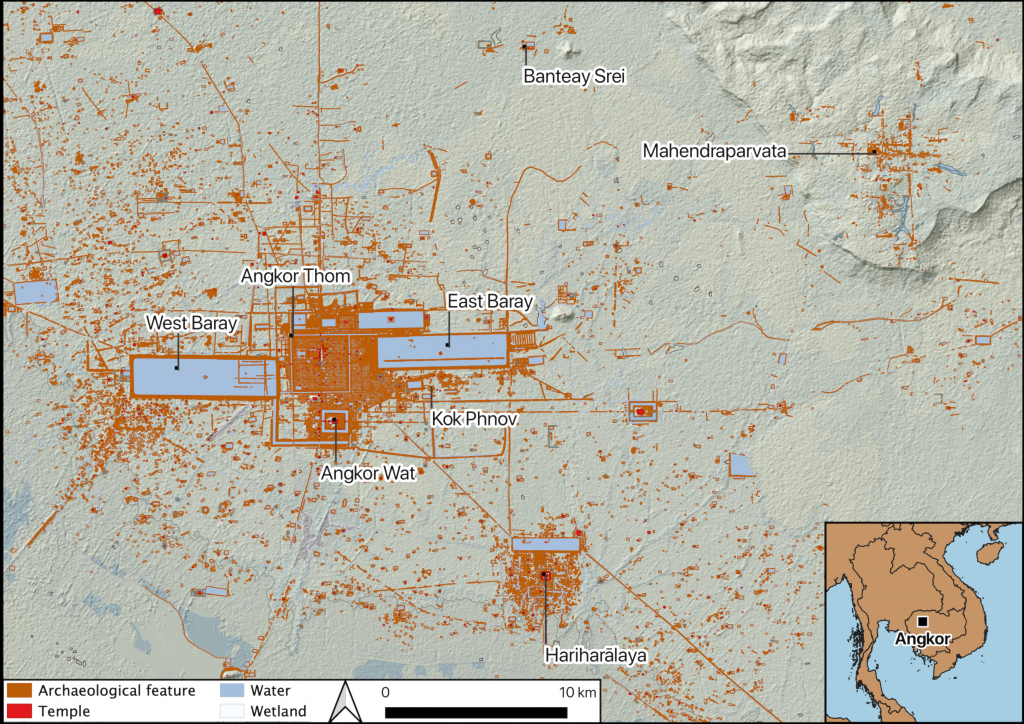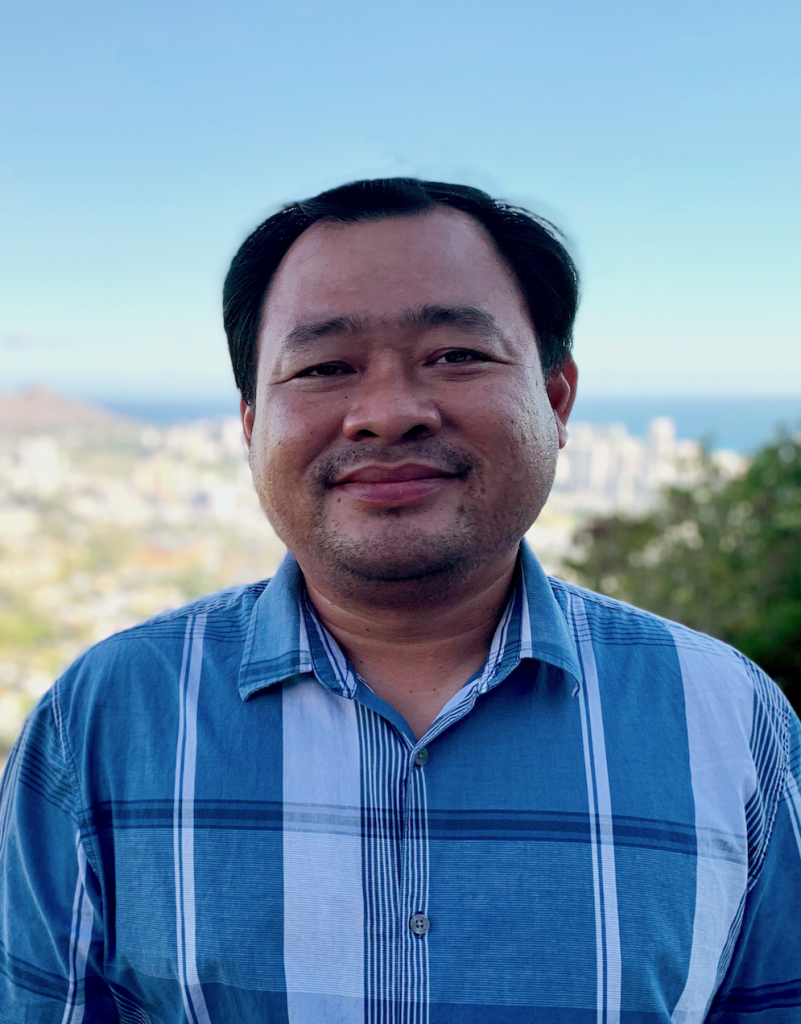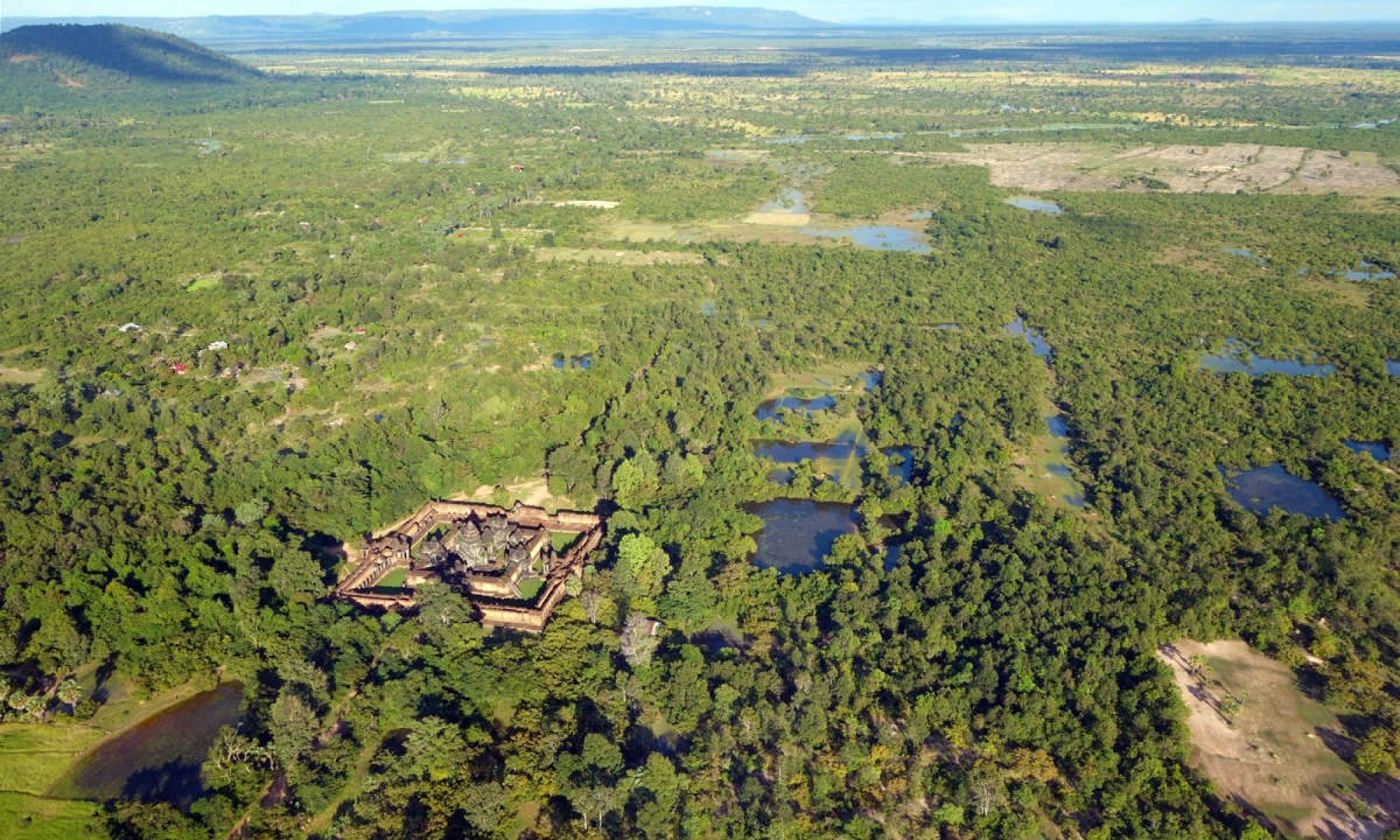Ruling an Empire through Compassion: Angkorian Infrastructure of Public Health and Accommodation
Dr. Piphal Heng, ACLS Postdoctoral Fellow, Northern Illinois University

Tuesday, January 19, 2021 10:00 AM (Pacific Time) Zoom Webinar
“Compassion” was an instrumental state’s infrastructure in building, maintaining, and expanding Angkor’s power from the 9th through 15th centuries CE. Angkorian civilization is known for its intricately carved monumental architecture, large water reservoirs, and interconnected road and canal systems. The relative importance of religion in Angkorian state governance has been debated for more than a century: to what extent can we separate Angkorian “church” from Angkorian state? This lecture provides a background to Angkor and emphasizes two rulers. The first was Yaśovarman I (889-910 CE), who established religious foundations throughout his polity to support his population and nurture religious pluralism. Attention concentrates on Jayavarman VII (1181-1218 CE), whose embrace of Buddhism and state projects were undergirded by a commitment to compassion. His many religious foundations (temples with reservoirs, etc.) housed religious specialists, hosted universities, and served as community anchors. They also expressed state power, marked its territories, and provided myriad social services to Angkorian Khmers.

Dr. Piphal Heng is a postdoctoral fellow at the Center for Southeast Asian Studies at Northern Illinois University. He received his PhD degree in Anthropology from the University of Hawai‘i at Mānoa. Heng’s archaeological research themes include religious change, urbanism, settlement patterns, political economy, and sociopolitical organizational shift. He is also interested in the intersection between heritage management, collaborative/public archaeology, knowledge production, and urban development. His current project explores the transformation of urban and rural settlements in response to the demographic and political changes that took place with the adoption of Theravada Buddhism in Angkor (14th-18th century Cambodia).
Sponsored by the UCLA Center for Southeast Asian Studies
Watch Dr. Piphal Heng’s Recorded Lecture Here:
